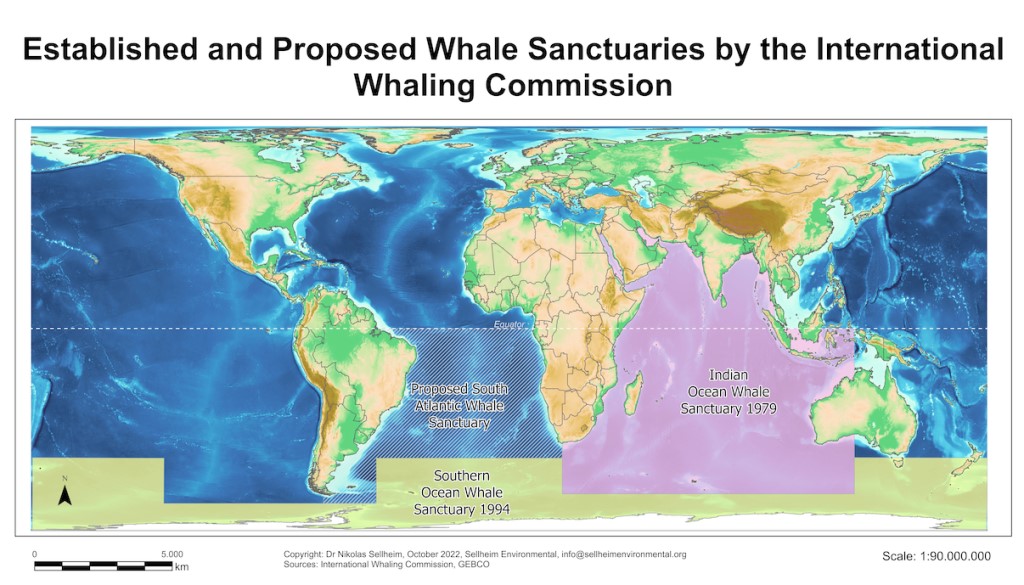SINGAPORE, (Reuters) – A proposal to establish a sanctuary for whales and other cetacean species in the southern Atlantic Ocean was rejected at a meeting of the International Whaling Commission (IWC) on Thursday, disappointing animal conservationists.
At the IWC’s annual session in Lima, Peru, 40 countries backed a plan to create a safe haven that would ban commercial whale hunting from West Africa to the coasts of Argentina, Uruguay and Brazil, extending a protected area already in place in the Southern Ocean.
However, 14 countries opposed the plan, meaning it narrowly failed to get the 75% of votes required.
Among the opponents were Norway, one of the three countries that still engage in commercial whaling, along with Iceland and Japan. Iceland abstained, while Japan left the IWC in 2019.
Petter Meier, head of the Norwegian delegation, told the meeting that the proposal “represents all that is wrong” about the IWC, adding that a sanctuary was “completely unnecessary”.
Norway, Japan and Iceland made 825 whale catches worldwide last year, according to data submitted to the IWC.
Whaling fleets “foreign to the region” have engaged in “severe exploitation” of most species of large whales in the South Atlantic, and a sanctuary would help maintain current populations, the proposal said.
The South Atlantic is home to 53 species of whales and other cetaceans, such as dolphins, with many facing extinction risks, said the proposal. It also included a plan to protect cetaceans from accidental “bycatch” by fishing fleets.
“It’s a bitter disappointment that the proposal … has yet again been narrowly defeated by nations with a vested interest in killing whales for profit,” said Grettel Delgadillo, Latin America deputy director at Humane Society International, an animal conservation group.
An effort by Antigua and Barbuda to declare whaling a source of “food security” did not gain support, and the IWC instead backed a proposal to maintain a global moratorium on commercial whaling in place since 1986.
“Considering the persistent attempts by pro-whaling nations to dismantle the 40-year-old ban, the message behind this proposal is much needed,” said Delgadillo.





